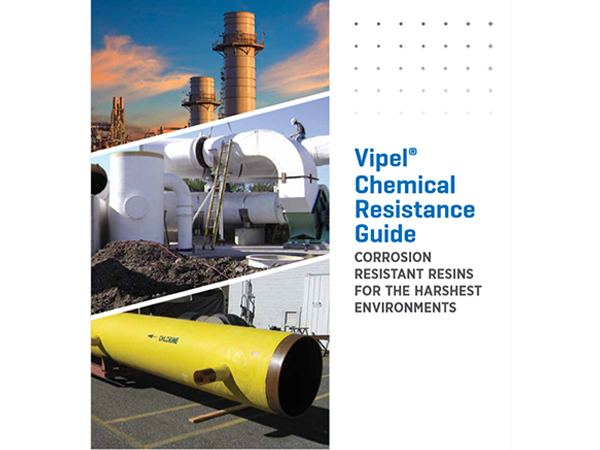
-
 Afrikaans
Afrikaans -
 Albanian
Albanian -
 Amharic
Amharic -
 Arabic
Arabic -
 Armenian
Armenian -
 Azerbaijani
Azerbaijani -
 Basque
Basque -
 Belarusian
Belarusian -
 Bengali
Bengali -
 Bosnian
Bosnian -
 Bulgarian
Bulgarian -
 Catalan
Catalan -
 Cebuano
Cebuano -
 China
China -
 China (Taiwan)
China (Taiwan) -
 Corsican
Corsican -
 Croatian
Croatian -
 Czech
Czech -
 Danish
Danish -
 Dutch
Dutch -
 English
English -
 Esperanto
Esperanto -
 Estonian
Estonian -
 Finnish
Finnish -
 French
French -
 Frisian
Frisian -
 Galician
Galician -
 Georgian
Georgian -
 German
German -
 Greek
Greek -
 Gujarati
Gujarati -
 Haitian Creole
Haitian Creole -
 hausa
hausa -
 hawaiian
hawaiian -
 Hebrew
Hebrew -
 Hindi
Hindi -
 Miao
Miao -
 Hungarian
Hungarian -
 Icelandic
Icelandic -
 igbo
igbo -
 Indonesian
Indonesian -
 irish
irish -
 Italian
Italian -
 Japanese
Japanese -
 Javanese
Javanese -
 Kannada
Kannada -
 kazakh
kazakh -
 Khmer
Khmer -
 Rwandese
Rwandese -
 Korean
Korean -
 Kurdish
Kurdish -
 Kyrgyz
Kyrgyz -
 Lao
Lao -
 Latin
Latin -
 Latvian
Latvian -
 Lithuanian
Lithuanian -
 Luxembourgish
Luxembourgish -
 Macedonian
Macedonian -
 Malgashi
Malgashi -
 Malay
Malay -
 Malayalam
Malayalam -
 Maltese
Maltese -
 Maori
Maori -
 Marathi
Marathi -
 Mongolian
Mongolian -
 Myanmar
Myanmar -
 Nepali
Nepali -
 Norwegian
Norwegian -
 Norwegian
Norwegian -
 Occitan
Occitan -
 Pashto
Pashto -
 Persian
Persian -
 Polish
Polish -
 Portuguese
Portuguese -
 Punjabi
Punjabi -
 Romanian
Romanian -
 Russian
Russian -
 Samoan
Samoan -
 Scottish Gaelic
Scottish Gaelic -
 Serbian
Serbian -
 Sesotho
Sesotho -
 Shona
Shona -
 Sindhi
Sindhi -
 Sinhala
Sinhala -
 Slovak
Slovak -
 Slovenian
Slovenian -
 Somali
Somali -
 Spanish
Spanish -
 Sundanese
Sundanese -
 Swahili
Swahili -
 Swedish
Swedish -
 Tagalog
Tagalog -
 Tajik
Tajik -
 Tamil
Tamil -
 Tatar
Tatar -
 Telugu
Telugu -
 Thai
Thai -
 Turkish
Turkish -
 Turkmen
Turkmen -
 Ukrainian
Ukrainian -
 Urdu
Urdu -
 Uighur
Uighur -
 Uzbek
Uzbek -
 Vietnamese
Vietnamese -
 Welsh
Welsh -
 Bantu
Bantu -
 Yiddish
Yiddish -
 Yoruba
Yoruba -
 Zulu
Zulu
frp valve
Understanding FRP Valves Advantages and Applications
Fiber Reinforced Polymer (FRP) valves are an increasingly popular choice in various industries due to their unique properties and advantages over traditional materials. These valves are engineered with a composite structure that enhances their performance, making them suitable for a wide range of applications. This article delves into the characteristics, benefits, and uses of FRP valves.
What are FRP Valves?
FRP valves are made from a composite material that consists of a polymer matrix reinforced with fibers, typically glass, carbon, or aramid. This combination creates a lightweight, yet extremely strong and durable product. The construction technology used in these valves allows for customized designs, enabling them to meet specific operational demands.
Key Advantages
1. Corrosion Resistance One of the most significant advantages of FRP valves is their resistance to corrosion. Unlike metal valves, which can rust or erode when exposed to harsh chemicals, FRP valves maintain their integrity in highly corrosive environments, making them ideal for chemical processing plants, wastewater treatment facilities, and oil and gas industries.
2. Lightweight FRP valves are considerably lighter than their metal counterparts. This not only reduces shipping and installation costs but also makes them easier to handle and install in complex systems. This lightweight nature provides an added advantage during maintenance and repair operations.
frp valve

3. Thermal Insulation FRP materials offer excellent thermal insulation properties, which help in minimizing heat transfer. This is especially beneficial in applications where temperature control is crucial. Moreover, the low thermal conductivity of FRP valves prevents condensation formation, reducing the risk of corrosion.
4. Cost-Effectiveness Although the initial investment in FRP valves may be higher than conventional materials, their longevity and reduced maintenance needs lead to cost savings over time. Their ability to withstand extreme conditions means they often last longer, negating the need for frequent replacements.
5. Customization FRP valves can be easily customized to meet specific requirements, such as different sizes, shapes, and pressure ratings. This flexibility allows industries to optimize their systems without compromising on performance.
Applications
FRP valves find applications in a variety of sectors. In the chemical industry, they are used for the transport of acids and alkalis. In the water treatment sector, they effectively handle corrosive agents in effluent and sewage systems. The oil and gas industry benefits from FRP valves’ resistance to harsh environmental conditions, including salty and humid environments.
Conclusion
In summary, FRP valves represent a significant advancement in valve technology. Their corrosion resistance, lightweight nature, thermal insulation, cost-effectiveness, and customization options make them an excellent choice for a wide range of applications. As industries continue to seek better performance and durability in their systems, the adoption of FRP valves is likely to grow, solidifying their role as a staple in modern engineering solutions. Whether you are in chemical processing, water treatment, or the oil and gas sector, considering FRP valves could enhance the efficiency and longevity of your operations.
Latest news
-
Exploring the Benefits of Top Hammer Drifter Rods for Enhanced Drilling PerformanceNewsJun.10,2025
-
High-Precision Fiberglass Winding Machine for GRP/FRP Pipe Production – Reliable & Efficient SolutionsNewsJun.10,2025
-
FRP Pipes & Fittings for Shipbuilding - Corrosion-Resistant & LightweightNewsJun.09,2025
-
Premium FRP Flooring Solutions Durable & Slip-ResistantNewsJun.09,2025
-
Premium Fiberglass Rectangular Tanks Durable & Lightweight SolutionNewsJun.09,2025
-
Tapered Drill String Design Guide Durable Performance & UsesNewsJun.09,2025









